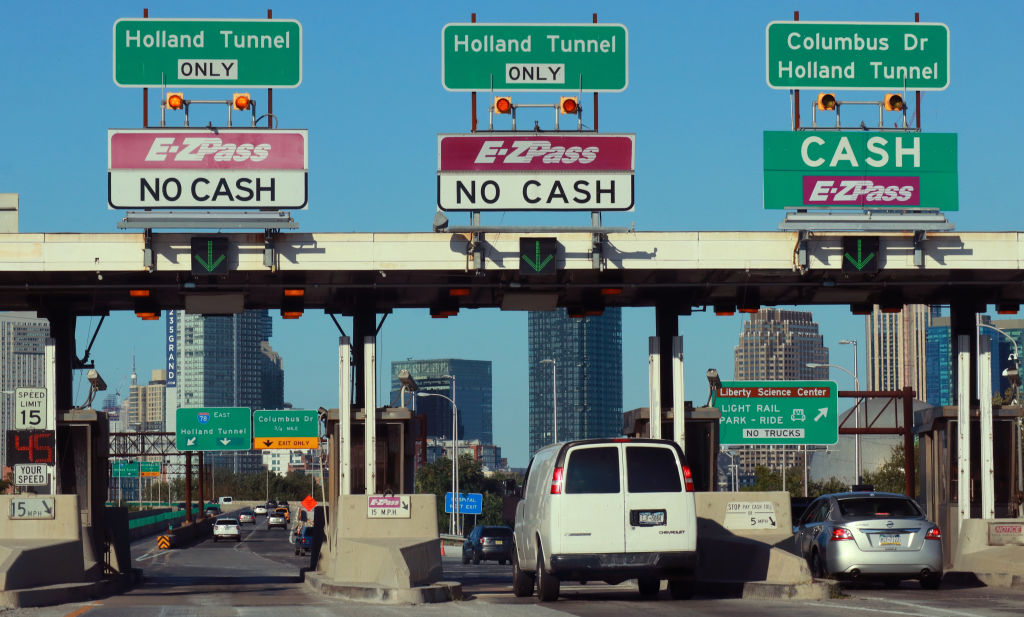
Nita M. Lowey, a Democrat representing New York’s 17th Congressional District, serves as chairwoman of the House Appropriations Committee.
When it comes to infrastructure, Washington is stuck in its own version of “Groundhog Day.” The Trump Administration has for years promised a “great national infrastructure program,” yet has pushed the issue to the back burner again and again and again.
We can no longer afford to remain in this infrastructure time loop. More than 47,000 of America’s bridges are “structurally deficient.” Nearly 20 percent of the nation’s roads are in poor condition. The majority of our port infrastructure is insufficient to accommodate the increasingly large ships that help drive U.S. competitiveness. In addition to financial risks, America’s neglected infrastructure continues to threaten public safety.
This isn’t surprising when you consider that federal infrastructure investment as a percentage of gross domestic product has declined in recent decades, dropping to less than 0.1% of GDP in 2016. Meanwhile, the American Society of Civil Engineers expects a $2 trillion infrastructure funding gap over the next decade. If it isn’t addressed, this gap will cause the U.S. economy to lose almost $4 trillion in GDP between now and 2025.
Making investments to close this gap and build modern, resilient infrastructure should be an area where we can reach bipartisan agreement. Infrastructure benefits families and businesses across the country, as well as the larger economy, by lowering costs, providing services like water and energy to homes and boosting long-term economic growth through increased productivity. Every dollar invested in infrastructure generates up to three dollars in economic growth.
Infrastructure investment makes transportation and housing safer by, for example, improving dangerous bridges and rail crossings and rehabilitating aging housing stock that have elevated risk for carbon monoxide poisoning or contain lead, mold or other serious health hazards. These investments also ensure energy products like crude oil and liquid natural gas are transported safely, reducing the risk of life-threatening disasters and keeping communities safe.
With tens of thousands of traffic fatalities every year, the deployment of autonomous systems across all modes of transport, and lead and carbon monoxide hazards all reinforce the obvious fact that the federal government can no longer punt on investing in infrastructure. Major projects – including the Gateway rail and tunnel project in New York and New Jersey – only grow more expensive when we needlessly delay necessary repairs and improvements.
As members of the House Appropriations Committee, we’re working to secure these necessary infrastructure investments. In June, the U.S. House passed appropriations legislation for fiscal year 2020 that provides a down payment of $137 billion for transportation and housing infrastructure, including $76 billion in new discretionary resources and $61 billion from dedicated trust funds. The legislation not only boosts funding above authorized levels for roads, bridges, transit, rail, ports and aviation, it lays the groundwork to build infrastructure that can better withstand the impacts of climate change..
To date, Senate Republicans have balked at a robust infrastructure package over cost – a concern nowhere to be found when they passed the Republican tax law, which will add an estimated $1.9 trillion to the national debt while doing little for economic growth.
Repairing and improving our infrastructure remains one of the top challenges facing our nation. It’s also an area ripe for bipartisan cooperation. For the sake of our economy, quality of life and international competitiveness, Congress and the administration must make significant infrastructure investments now before a bad situation gets even worse.
More Must-Reads From TIME
- What Student Photojournalists Saw at the Campus Protests
- How Far Trump Would Go
- Why Maternity Care Is Underpaid
- Saving Seconds Is Better Than Hours
- Welcome to the Golden Age of Ryan Gosling
- Scientists Are Finding Out Just How Toxic Your Stuff Is
- The 100 Most Influential People of 2024
- Want Weekly Recs on What to Watch, Read, and More? Sign Up for Worth Your Time
Contact us at letters@time.com